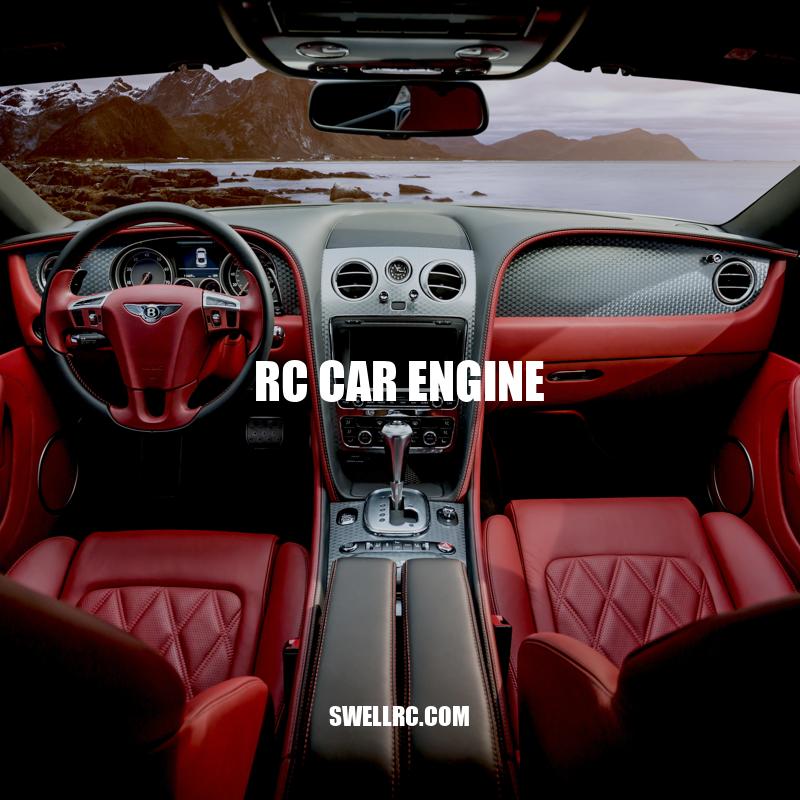Guide to RC Car Engines: Types, Sizes, and Maintenance Tips
An RC car engine is the power unit that propels remote controlled cars (RC) which come in different sizes and styles. The engine of an RC car is what makes it move forward or backward, and it also controls the speed. Most RC cars are powered by either electric motors, nitro engines, or gasoline engines, with each type having its advantages and disadvantages. Electric RC car engines are the most popular type, and they offer low maintenance, easy operation, and no fuel costs. They are ideal for beginners and casual drivers who want to have fun. There are different electric motor categories available, including brushed, brushless, and sensored brushless. Brushed motors are the most affordable and have less power, while brushless motors have better performance and are costlier.
Nitro engines: Performance, maintenance, and cost considerations
- Nitro engines are another popular type of RC car engines
- They run on nitro fuel, which consists of methanol, nitromethane, and oil
- They provide a unique sound and smell and have better acceleration than electric motors
- Nitro engines are more complicated than electric motors and require more maintenance and tuning
- They also have a higher fuel cost, and the fuel can be messy and dangerous
RC car enthusiasts can find nitro engines and accessories in hobby stores or on online marketplaces such as Amazon, eBay, and RC-specific websites. Some popular nitro engine brands include OS Engines, Novarossi, and Picco. Nitro engines require a break-in period and frequent tuning of the carburetor, glow plug, and fuel mixture to ensure optimum performance. Nitro fuel can be purchased in different blends and percentages, depending on the engine’s size and power. RC car drivers who prefer nitro engines usually aim for the thrill of speed and noise rather than convenience and cost.
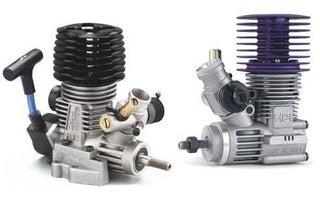
Where can RC car enthusiasts find nitro engines and accessories?
RC car enthusiasts can find nitro engines and accessories in hobby stores, online shops specializing in RC car parts, and through their local RC racing clubs.
Top Performers: The Best Gasoline RC Engines for Advanced Drivers
Gasoline engines are the biggest and most powerful RC car engines, and they provide the best performance, speed, and reliability. They run on gasoline like regular cars and are suitable for advanced and competition-level RC car drivers who want to achieve the best results. However, they are more expensive and complicated than electric or nitro engines.
Gasoline engines are more massive and heavier than nitro or electric motors and require specific fuel blends and oil types. Gasoline engines can generate up to 8 horsepower, and they can reach speeds of over 60 miles per hour, depending on the car’s specifications and gearing ratio. Gasoline RC engines are available on various websites, including Horizon Hobby, Tower Hobbies, and RC Superstore. Gasoline engines are challenging to start and operate, and they need regular maintenance to ensure top performance.
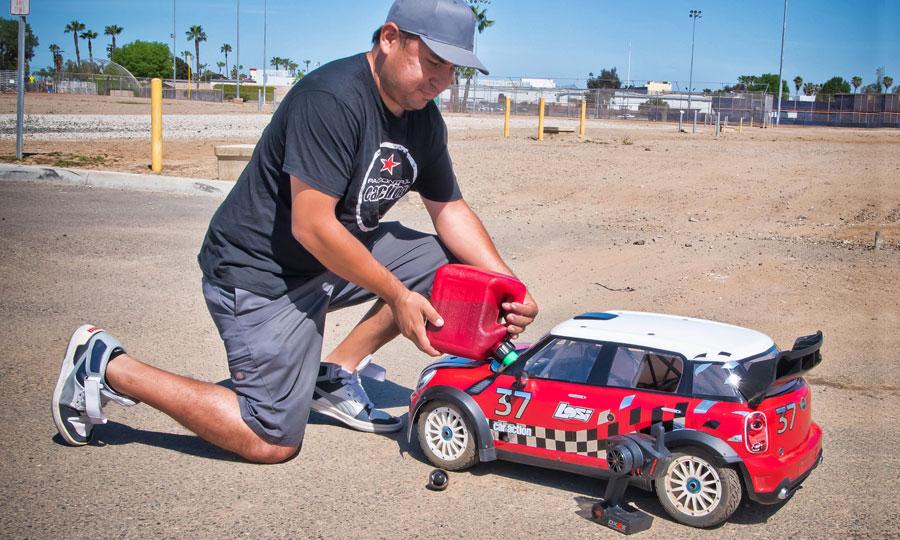
What are the advantages and disadvantages of using gasoline engines in RC cars?
Advantages: Gasoline engines provide longer run times and more power than electric engines.
Disadvantages: Gasoline engines consume fuel, produce emissions, and require more maintenance than electric engines. They are also heavier and can be more difficult to start.
Engine Size and Power Range
RC car engines come in different sizes and power ranges, with displacement being the most common measurement.
The bigger the engine displacement, the more power it produces. For example:
– 0.15-0.18cc nitro engines are suitable for mini RC cars and trucks,
– 0.21-0.28cc nitro engines are ideal for 1/10 scale RC cars and buggies,
– 0.28-0.32cc nitro engines are perfect for 1/8 scale RC cars and trucks,
– 3.5-4.6cc nitro engines are used in 1/8 and 1/5 scale RC cars and buggies,
– 20-80cc gasoline engines are common in large 1/5 and 1/4 scale RC cars,
– Electric motors range from 1800kv to 7000kv for 1/10 to 1/5 scale RC cars.
RC car engines are available from various brands, including Traxxas, HPI Racing, Losi, Novarossi, and OS Engines, among others. The prices of RC car engines vary depending on the type, size, and brand. Nitro engines can cost between $50 and $400, while gasoline engines can cost between $300 and $1000. Electric motors can range from $10 to $200, depending on the category and performance.
RC car engines provide endless fun and excitement for both beginners and professional drivers.
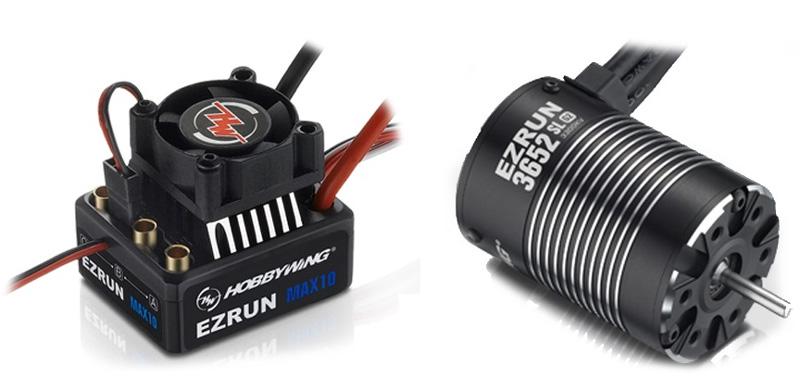
What are the different types of RC car engines available?
There are several types of RC car engines available, including nitro engines, electric motors, and gas engines.
Maintain and Tune Your RC Car Engine for Optimum Performance
RC car engines require proper maintenance and tuning to ensure optimum performance and longevity. Electric motors need periodic cleaning, and nitro engines need frequent tuning of the carburetor, glow plug, and fuel mixture. Gasoline engines require regular oil changes and air filter cleaning.
To maintain and tune RC car engines, drivers can follow these tips:
- Read the manufacturer’s manual and follow the maintenance schedule
- Use quality parts and accessories
- Clean the engine and components regularly with a soft cloth and a brush
- Check and adjust the carburetor and fuel mixture for nitro engines
- Replace the glow plug if it’s worn out or damaged
- Change the oil and check the air filter for gasoline engines
- Inspect the motor for wear, damage, or looseness
- Store the engine in a dry and cool place, away from moisture and dust
Drivers can find more information and resources about RC car engines on various websites and forums, including RC Car Action, RC Groups, RC Driver, and RC Universe, among others. These websites offer reviews, tips, tutorials, and discussions on RC car engines and related topics. Drivers can also find RC car engine parts and accessories on online marketplaces like Amazon, eBay, and HobbyKing, among others. It’s essential to read the product descriptions, reviews, and ratings before purchasing any RC car engine parts or accessories. By following these maintenance and tuning tips, drivers can ensure that their RC car engines perform at their best and last for a long time.
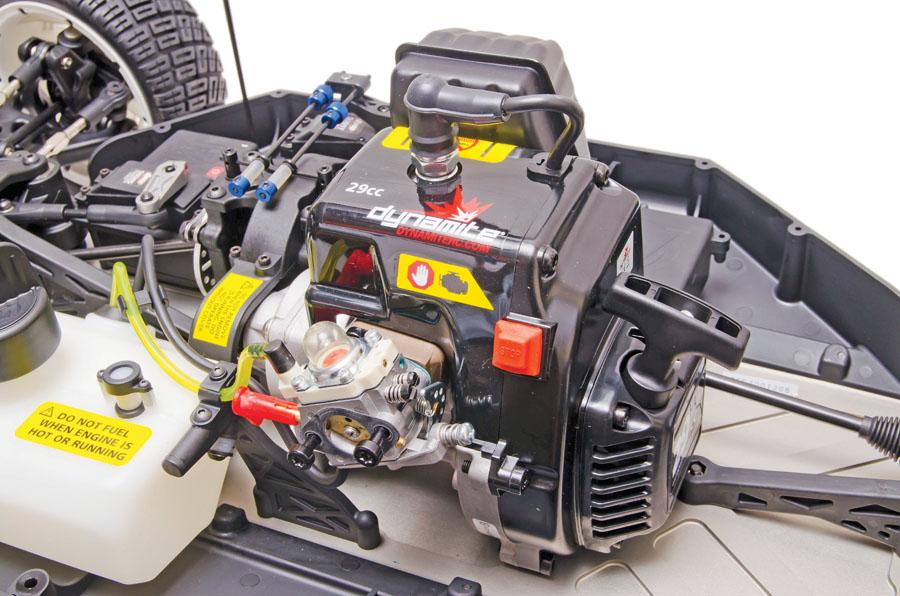
What are some websites and forums where drivers can find information and resources about RC car engines?
Some websites and forums where drivers can find information and resources about RC car engines are RCGroups.com, RCTech.net, RC Universe, and HobbyTalk.com.
Choosing the Right Size and Power for Your RC Car Engine
- RC car engines‘ size and power output vary depending on the engine’s displacement and type
- For nitro engines, the displacement ranges from 0.05cc to 4.60cc, and the power output ranges from 0.2hp to 2.5hp
- For gasoline engines, the displacement ranges from 20cc to 80cc, and the power output ranges from 2hp to 10hp
- For electric motors, the power output varies depending on the voltage and wattage, with the most common sizes being:
- 1/18 to 1/24 scale cars: 180-size or 280-size motors, providing 10,000 to 15,000 RPM and 20 to 30 mph speed
- 1/14 to 1/12 scale cars: 380-size or 540-size motors, providing 15,000 to 20,000 RPM and 30 to 40 mph speed
- 1/10 to 1/8 scale cars: 550-size or 775-size motors, providing 20,000 to 30,000 RPM and 40 to 60 mph speed
Drivers can choose the appropriate size and power of the RC car engine based on their driving skills, experience, and preference. Smaller engines are suitable for indoor or casual driving, while larger ones are ideal for outdoor or competition-level driving. It’s crucial to match the engine size and power with the car’s weight and gearing to ensure efficient and safe operation. RC car engine parts and accessories with specific size and power requirements are available on various websites and online marketplaces like Amazon, eBay, Tower Hobbies, and Horizon Hobby, among others.
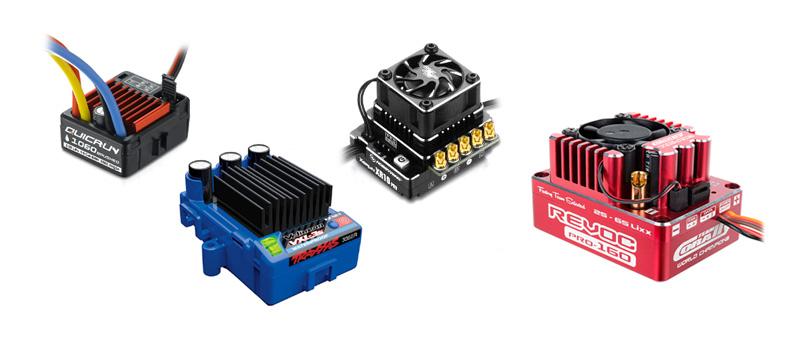
What factors should drivers consider when choosing the appropriate size and power of an RC car engine?
Drivers should consider the weight of the RC car, the type of terrain it will be driven on, and their skill level when choosing the appropriate size and power of the engine.
Conclusion
In conclusion, the RC car engine is a crucial component that has a significant impact on the car’s performance and user experience. RC car enthusiasts can choose between three main types of engines, depending on their preferences, skill level, and budget. Electric motors are perfect for beginners and provide low maintenance and operational costs. Nitro engines provide a unique sound and smell, better acceleration, and an engaging driving experience but require more maintenance and tuning. Gasoline engines are the most potent and reliable but are expensive and challenging to operate. Regardless of which engine type one chooses, proper maintenance and tuning are essential to achieve optimum performance and longevity.
RC cars utilize engines of different sizes, which depends on their displacement and power output. It’s crucial to select an appropriate engine to match the car’s weight and gearing to ensure smooth and efficient operation. RC car enthusiasts can purchase engine parts and accessories on various websites and online marketplaces to upgrade and customize their cars further.
Overall, RC car engines provide endless hours of entertainment and satisfaction to enthusiasts of all ages and backgrounds. It’s always advisable to read the manufacturer’s recommendations and safety instructions before operating an RC car engine to ensure a seamless and safe driving experience.

